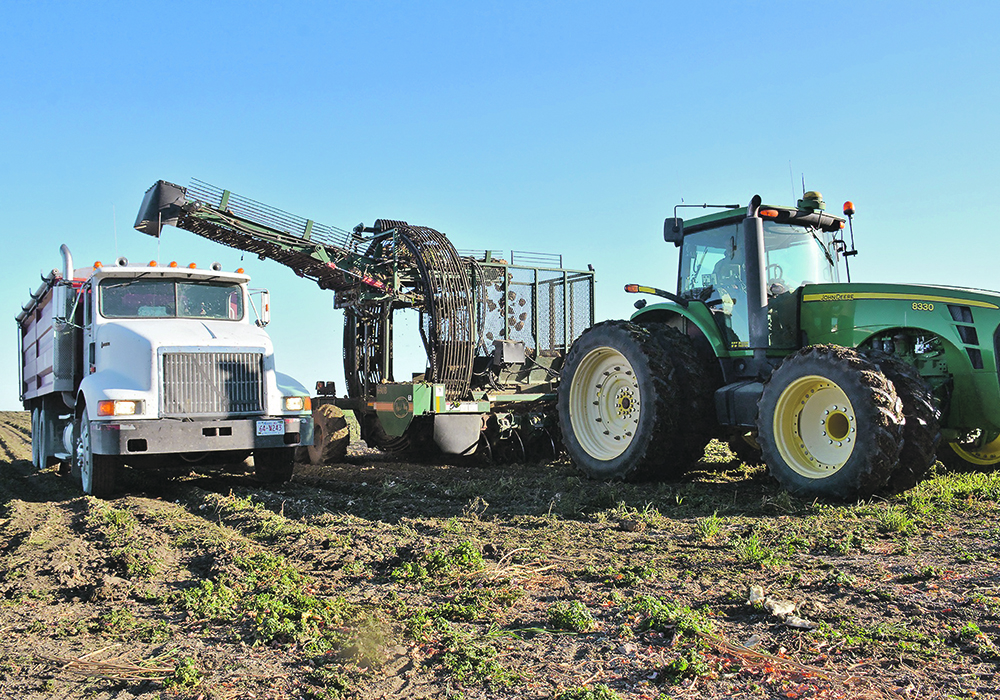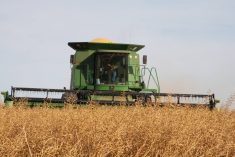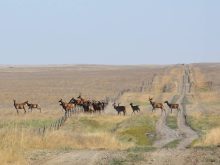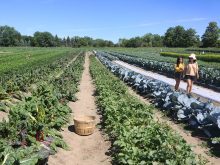Growers say sugar content is lower than normal but yields look good after a summer that saw intense heat and little rain
The sugar beet fields are a little green for the beginning of October and the summer heat saw water allocations maxed out on irrigated crops, but this year’s harvest in southern Alberta looks solid.
“The sugar (content) is not as good, but yields are very good,” said Gary Tokariuk, president of the Alberta Sugar Beet Growers, during the organization’s open house tour earlier this month.
The previous two harvests were plagued by sudden shifts in weather including early frosts and snowfall.
But overall, the last decade has been good for the Alberta crop with the Lantic Taber Beet Factory taking all it can get from local growers who are likely to produce 35 to 40 tonnes an acre this year, according to Tokariuk.
It was a slow start to the year, however, with a late-May snowfall blanketing the sugar beet heartland running from Bow Island to Lethbridge.
After getting about 150 millimetres of precipitation early in the year, the heat kicked in, “and then we didn’t see any rain after that,” said Tokariuk, adding his farm and others used up their 16-inch per acre water allocation this year.
“Unless we get major snowfalls, next year will be interesting,” he said.
For now, it’s a time to celebrate the good news in the industry, which hopes to expand in the coming years to provide more to the domestic market than the 10 percent it currently supplies.
They’ll need some help on the regulatory front if that is going to happen, said ASBG executive director Melody Garner-Skiba.
“We’re not realizing the full potential of this whole supply chain because we’re not growing and producing (more sugar) here,” she said.
The current North American trade agreement doubled the amount of beet sugar exports to the United States to 20,000 tonnes. But that’s specific to sugar produced from beets while sugarcane exported into Canada and refined here isn’t subject to export restrictions, said Garner-Skiba.
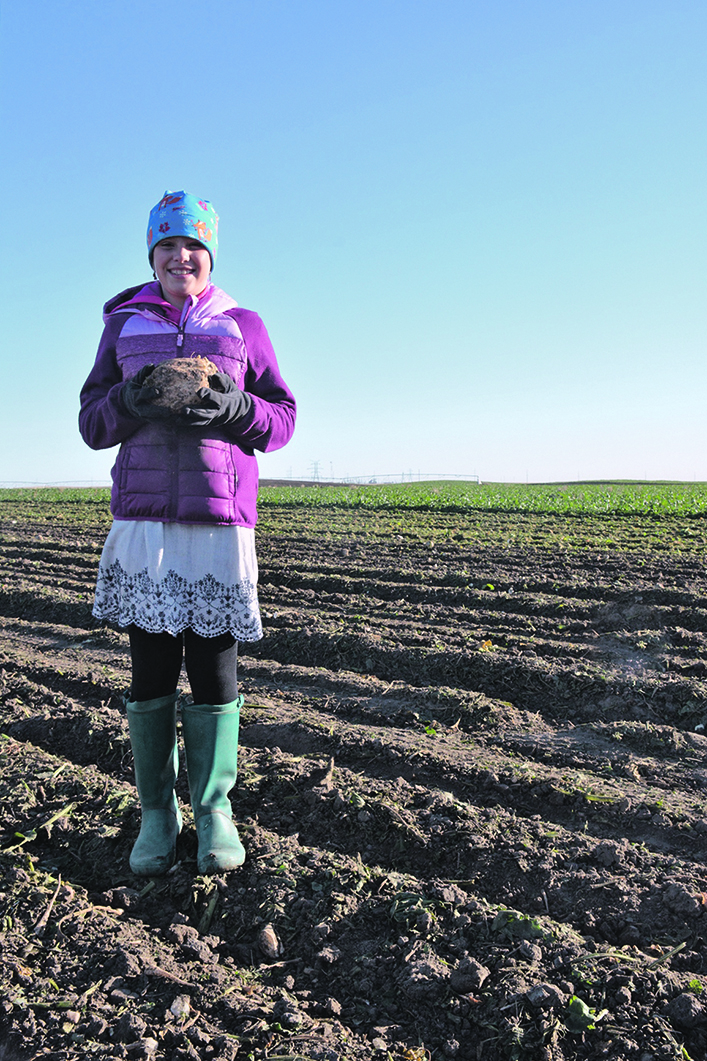
“That’s going to impact the cane farmers in Brazil, Guatemala or Vietnam. It means they get to ship it here, refine it and re-export it versus it being our farmers and being that whole value along that supply chain,” she said.
The industry would like to see restrictions on the amount of raw cane imported into the country, according to Garner-Skiba.
“It would encourage investment and expansion of plants like our plant in Taber. The Ontario beet farmers would love to have a plant of their own,” she said. “But at this point, there is no impetus for that investment because we are competing against the cane farmers who are highly subsidized.”
There are opportunities to grow domestic market share, however. Garner-Skiba would like to see southern Alberta double the number of acres of sugar beets as irrigation expansion takes place in the region.
“What we’re looking at is the dryland farmer out there right now — growing wheat, barley — who are maybe not doing a four-year rotation. They can incorporate this in with the irrigation expansion,” she said.
Current rotations for sugar beet farms in the region include a cereal, pulse and forage crop but Garner-Skiba says there is one crop that many producers prefer.
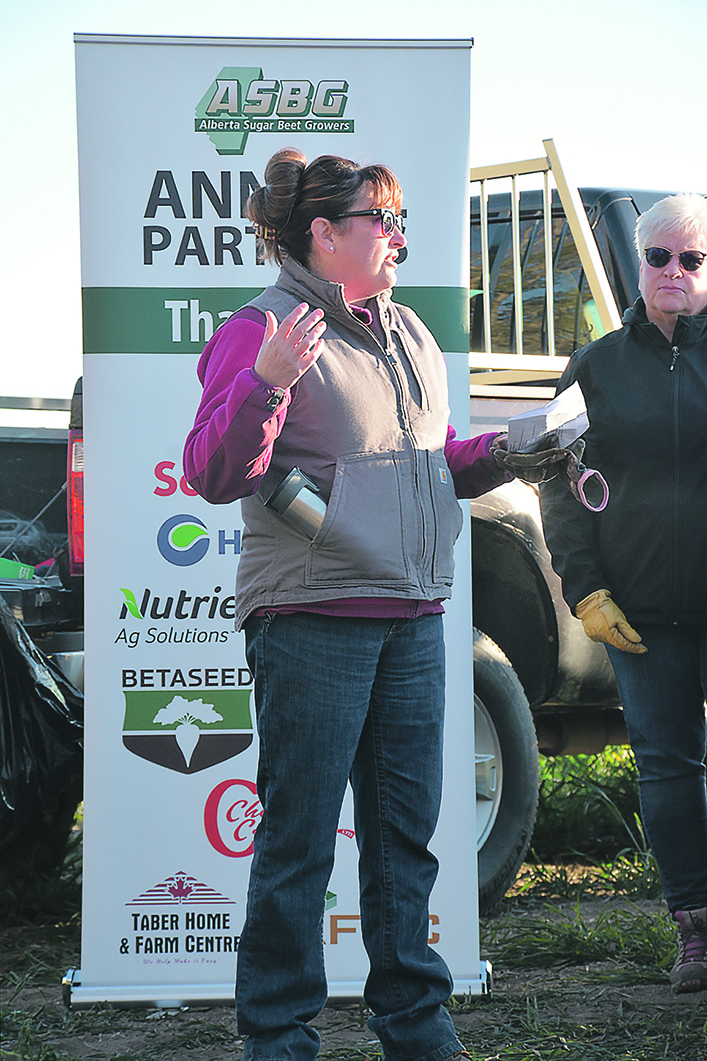
“A lot of our growers swear growing potatoes right after beets helps their yields,” she said.
While there continues to be challenges with labour — particularly truck drivers — Tokariuk says technology continues to improve efficiencies.
“There are guys with self-propelled harvesters out there. You have one unit in the field, and it defoliates, loads beets all on its own,” he said. “When you have big acres, it’s harder to find employees and that’s going to make a difference.”
Improved genetics are boosting sugar content in beets, while Roundup Ready varieties have cut down on weeds.
“I’m excited for the industry. I think we have a great future,” said Tokariuk.




